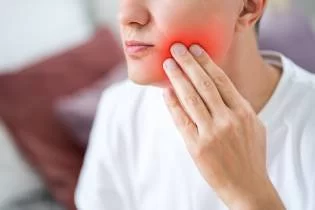
What Causes Toothaches and How to Relieve Them
Toothaches are one of the most common reasons people visit the dentist. While they can happen at any time, they are often the result of an underlying issue that requires attention. In this article, we will explore the common causes of toothaches and offer practical advice on how to relieve them, so you can get back to living life pain-free.
1. Causes of Toothaches
Toothaches can be caused by a variety of factors, and identifying the root cause is the first step in getting the proper treatment. Below are some of the most common reasons people experience tooth pain:
- Cavities (Dental Caries): One of the most frequent causes of toothaches is cavities, which form when plaque and bacteria eat away at the tooth enamel. If left untreated, cavities can grow and cause more severe pain.
- Gum Disease: Gum disease, also known as periodontitis, occurs when bacteria infect the gums, leading to inflammation and discomfort. This can cause pain in the gums surrounding the affected tooth.
- Tooth Sensitivity: People with sensitive teeth experience pain when exposed to hot, cold, sweet, or acidic foods and beverages. This is often due to worn enamel, gum recession, or cracks in the teeth.
- Tooth Infection (Abscess): A tooth infection occurs when bacteria infect the pulp, the soft tissue inside the tooth. This can cause severe pain, swelling, and even fever if left untreated.
- Teeth Grinding (Bruxism): Grinding or clenching your teeth, often due to stress or during sleep, can cause toothaches, especially if the teeth are worn down or damaged in the process.
2. How to Relieve Toothaches
Relieving a toothache involves a combination of home remedies and professional dental care. Here are some methods you can use to alleviate the pain:
2.1. Home Remedies
- Warm Saltwater Rinse: Rinsing your mouth with warm salt water can help reduce inflammation and remove debris from the affected area, providing temporary relief.
- Cold Compress: Applying a cold compress to the outside of your cheek near the painful tooth can help numb the area and reduce swelling.
- Pain Relievers: Over-the-counter pain relievers such as ibuprofen or acetaminophen can help relieve the pain until you can see a dentist.
- Clove Oil: Clove oil contains eugenol, a natural anesthetic. Applying a small amount of clove oil to the affected tooth can provide temporary numbing relief.
- Hydrogen Peroxide Rinse: A diluted hydrogen peroxide rinse (1 part peroxide to 2 parts water) can help kill bacteria and relieve pain from infections or gum disease.
2.2. Professional Dental Treatment
If your toothache persists or is caused by a more serious issue, it’s important to visit a dentist for professional care. Here are some common treatments:
- Dental Fillings: If cavities are causing your toothache, a dentist will likely fill the cavity to prevent further decay and restore the tooth’s structure.
- Root Canal: If the tooth infection is severe, a root canal may be necessary to remove the infected pulp and seal the tooth to prevent further damage.
- Gum Disease Treatment: For gum disease, a dentist may perform a deep cleaning (scaling and root planing) to remove plaque and tartar buildup below the gumline.
- Tooth Extraction: In extreme cases where a tooth cannot be saved, the dentist may need to extract the tooth to alleviate pain and prevent the infection from spreading.
3. Preventing Toothaches
The best way to prevent toothaches is through regular oral hygiene and dental visits. Here are some essential practices that can help:
- Brush and Floss Regularly: Brushing twice a day with fluoride toothpaste and flossing once a day helps remove plaque and bacteria that can cause cavities and gum disease.
- Use Mouthwash: An antibacterial mouthwash can help reduce plaque buildup and fight bad breath, which can lead to tooth pain.
- Limit Sugary Foods: Reducing your intake of sugary foods and drinks helps prevent cavities from forming, as sugar feeds the bacteria that cause tooth decay.
- Visit the Dentist Regularly: Regular dental checkups are essential for identifying and treating dental problems before they become more serious. Your dentist can spot signs of cavities, gum disease, or infections early.
- Wear a Night Guard: If you grind your teeth at night, using a night guard can prevent tooth wear and relieve discomfort from bruxism.
4. When to See a Dentist
If your toothache is severe, persistent, or accompanied by other symptoms such as fever, swelling, or difficulty swallowing, it’s important to seek immediate dental care. Ignoring a toothache can lead to more serious complications, such as tooth infections, abscesses, or even tooth loss.
If you're looking for expert dental care to relieve your toothache or prevent future problems, visit Dentistry Toothtruth for more information on how we can help you maintain a healthy and pain-free smile.







 Sean S Jung DDS5.0 (8 review)
Sean S Jung DDS5.0 (8 review) Jefferson Urology Associates2.0 (32 review)
Jefferson Urology Associates2.0 (32 review) Ocean County Endodontics LLC: Mc Cafferty Ryan J DDS4.0 (8 review)
Ocean County Endodontics LLC: Mc Cafferty Ryan J DDS4.0 (8 review) Sunbrite Dental4.0 (1409 review)
Sunbrite Dental4.0 (1409 review) West Dental4.0 (58 review)
West Dental4.0 (58 review) Shore Smiles 4 Kids5.0 (21 review)
Shore Smiles 4 Kids5.0 (21 review) The Importance of Oral Health Education During Pregnancy for a Healthy Pregnancy
The Importance of Oral Health Education During Pregnancy for a Healthy Pregnancy Best Tips for Brushing Your Teeth Properly for Healthy Gums: Essential Techniques for Oral Health
Best Tips for Brushing Your Teeth Properly for Healthy Gums: Essential Techniques for Oral Health Why Skipping Dental Checkups Can Lead to Bigger Oral Health Problems
Why Skipping Dental Checkups Can Lead to Bigger Oral Health Problems Advantages of Porcelain Dental Restorations
Advantages of Porcelain Dental Restorations How Can Diabetes Cause Tooth and Gum Problems? Preventing and Managing Oral Health Issues
How Can Diabetes Cause Tooth and Gum Problems? Preventing and Managing Oral Health Issues Healthy Habits for Promoting Good Oral Health and Hygiene: Tips for a Healthy Smile
Healthy Habits for Promoting Good Oral Health and Hygiene: Tips for a Healthy Smile